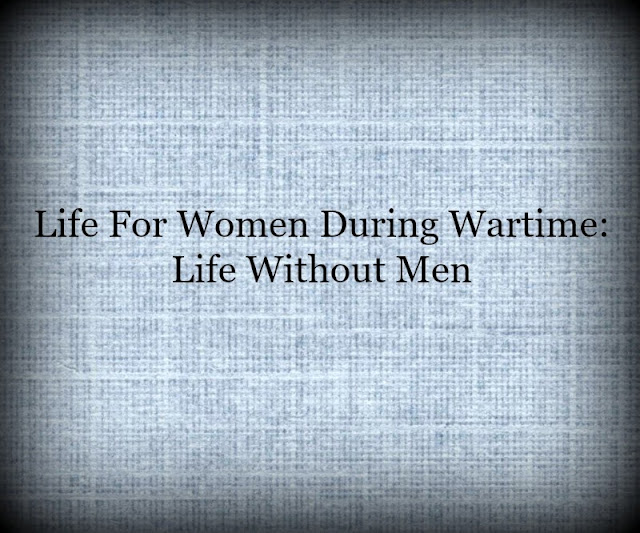Life For Women During Wartime: Life Without Men
(The history geek in me has arisen again. And probably will many more times.)
During wartime (WWI and WWII), many men were gone. Men ages 18-42 were either drafted or volunteered to fight. Some were pressed into service in other ways. Some were given reprieve if the government thought their talents lie elsewhere like farming. By the end of WWII, 16 million men had or were serving in some capacity. Some of the men returned home early, but usually with injuries.
That left a lot of women to pick up where the men left off. They didn’t have a choice. Many women felt it was their patriotic duty to do what they could for the war effort. While many older gentlemen did what they could to help out and work, the loss of service age men was felt across the country in every sector. Women were left to do what they could.
I am sure that many women had doubts, struggled a bit, and felt a lot of weight on their shoulders. However, they knew whatever they were going through was nothing compared to what their menfolk were going through on the battlefields and behind the lines.
Women had to step up and do what they could. Many went to work in factories, ran business and farms in place of their men, and/or moved closer to family or moved in with family. Many women did all that while still tending children, maintaining a home, working gardens, and/or tending small livestock.
What comes to my mind is this: What if that were to happen again?
Do you think you can handle being away from the men in your life for 4-5 years?
Average length of service was 33 months so some men were gone longer and some gone shorter lengths of time. Still, that is a long time to be away from your partner. I know several military wives can attest that 1-2 years of being gone is a long, hard time. Being everything while your partner is away and keeping all the balls in the air is hard.
Could you handle living with others? Could you handle living with your parents and family again?
Several women moved their families to live with or very near their parents. Sometimes, women would live with other women and their kids to save on expenses and help with kids. Women recognized they needed help with kids while they worked long hours at factories or on farms. Nowadays, some women would struggle to do this. Even though we have day cares now, women on their own still need the help of others to manage it all and stay sane. Family sometimes can make this easier.
Could you manage the sheer amount of work that would come with managing work, home, kids, gardening, and whatever else would be on your plate?
Women worked harder that ever during WWI and WWII. Granted, a lot was being asked of them and many of them stepped up and did it. I am sure they still had a little fun because sometimes you have to keep sane somehow. Laziness was not encouraged. People helped each other if they could, but at the end of the day women still had work to do.
One of the things that would make life easier now to handle this is the technology available. Communication is easier. Certain household tasks are easier and take less time such as laundry and dishes. More reliable, fuel-efficient vehicles make getting around easier and cheaper.
However, they also had rationing which included food, clothing, gas, and tires. You wouldn’t be able to just fill up your vehicle with gas whenever you feel like it. You would make sure your clothes were kept in good condition to wear them longer. Many countries practiced and enforced blackouts at night so lights and computers would be kept to a minimum. Conservation of resources would be even more encouraged than it is now.
Life would be harder. Quite frankly, I think women are made of some pretty tough stuff and we could handle it. I know, for some women, this would be a very tough and very harsh life adjustment for them. The time is to make this less so is now.
Thanks for reading,
Erica
